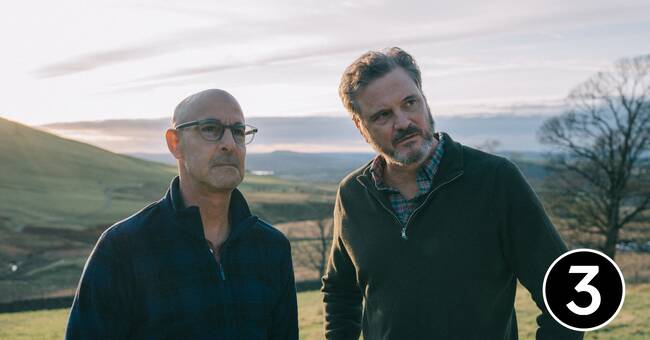The middle-aged couple
Sam (Colin Firth) and Tusker (Stanley Tucci) have been together for a long time.
It is noticeable in their gnawing when Supernova rolls on, in the middle of a road trip with a motorhome along the British countryside where the weather is constantly overcast.
They are on their way to Sam's piano concert and on the way they stop with friends and family.
A blanket of bittersweet limbo lies over all social interactions.
At first it may seem as if the love has cooled, but the couple's irritation is based on another element of anxiety. Tusker has started to become demented. In addition to the memory swaying, he has a hard time buttoning his shirt, holding on to a plate and sometimes he just walks away. Sam has taken on the role of personal assistant, and with a self-destructive calm, he sees his beloved slowly get lost in the mists inside his own head.
Supernova is
a tool for strong acting more than anything else, and Colin Firth does an impressive job with Sam who constantly tries to hide his feelings of desperation and powerlessness but at the same time radiates them with his whole being. Tucci is also tastefully toned down, and never exaggerates in his interpretation of dementia. Often it's just a matter of taking a well-timed break and apologizing on a socially awkward occasion, but Tucci does so with a convincing realism. It is respectful not to use big gestures when it comes to portraying such a serious illness.
The film is not
religious, but slightly sentimental and more scientifically spiritual.
The title refers to Tusker's knowledge of astronomy, and in one scene he explains to a little girl how we all consist of dust from spent stars.
It becomes a metaphor for death as a building block for something new, and perhaps the ultimate end is the only way forward for both Sam and Tusker.
It's a bit of an unfortunate coincidence that Supernova premieres so close to the super-acclaimed The Father where Anthony Hopkins plays a demented old man.
For those who can't stand two films about dementia, The father can probably win on pure hype.
However, Supernova touches
on the importance of romantic love for a particular generation of gay men, and it becomes clear that even their chosen family is worth dying for.
Admittedly, the film is at times quite conventional in its narrative and can be very reminiscent of other depictions of illness.
Another reference that emerges is Michael Haneke's euthanasia drama Amour, which had a more crass attitude to death.
Supernova is still a clever drama about a terrible disease, but is not directly exciting and requires patience.
It is important to see it when you simply have a good day.

